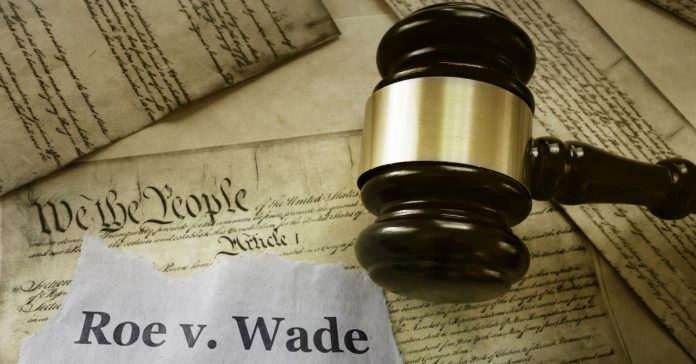Column by Bonnie Finnerty
It’s been almost a half century, yet two Supreme Court decisions still divide our nation. In 1973, Roe v. Wade and its companion case Doe v. Bolton legalized abortion up through birth. Some Americans have accepted abortion on demand as being morally permissible because it is legal.
We need only consider that slavery was legal for over 240 years. Its end was brought about by a small yet undeterred group of people. When the truth that human dignity belongs to every person triumphed, the institution of slavery was abolished.
Modern-day abolitionists seek to end another immoral institution: the killing of innocent human life through legalized abortion. With the balance on the Supreme Court shifting, is overturning Roe a possibility?
There is no explicit right to abortion in the U.S. Constitution. In Roe, the Court ruled that the “right” to abortion was implicit in a right to privacy protected by the 14th Amendment. But the 14th amendment fails to mention privacy. To justify abortion based on a right to privacy not stated in the Constitution, the Court referenced a 1965 case on contraception called Griswold vs. Connecticut.
In that decision, Justice William O. Douglas essentially invented a right to privacy, writing that the Bill of Rights casts penumbras (shadows) and emanations (rays) in which a “zone of privacy” exists. It was on this weak foundation of shadows and rays that a right to privacy and later a right to abortion were founded.
But the 14th Amendment does include explicit language about a more fundamental right: no State shall make a law depriving any person of life. Ironically, the 14th amendment is used to imply a right to abortion that is somehow prioritized over an explicitly stated right to life.
From the time Justice Blackmun wrote the majority opinion for Roe, legal scholars have acknowledged its shaky foundation. Even Blackmun’s law clerk, Edward Lazarus, said, “As a matter of constitutional interpretation and judicial method, Roe borders on the indefensible….”
Furthermore, Blackmun conceded that the right to abortion is not absolute, stating, “If this suggestion of personhood is established, [Roe’s] case, of course, collapses, for the fetus’ right to life would then be guaranteed specifically by the [14th] Amendment.”
Since 1973, haven’t both science and technology shown us such irrefutable proof? Advancements in ultrasound and embryology prove that we are distinctly human persons from the moment of fertilization.
With a feeble legal foundation and today’s advanced science, Roe seems ripe for reconsideration. If overturned, abortion will not become illegal. Rather, the issue would go back to each state.
Roe has always been bad law, failing to truly empower women in crisis. Being led to believe that one must kill her own child in order to succeed in the workplace, obtain an education, or maintain a relationship is far from liberation.
Just as we slowly realized the immorality of enslaving humans, it is time to get woke about abortion. Life in its smallest, most vulnerable, dependent stages is still precious human life worth protecting. It’s how you and I began. How can we say others do not deserve the same right to life?
Roe must go.
Bonnie Finnerty is the Education Director of the PA Pro-Life Federation































